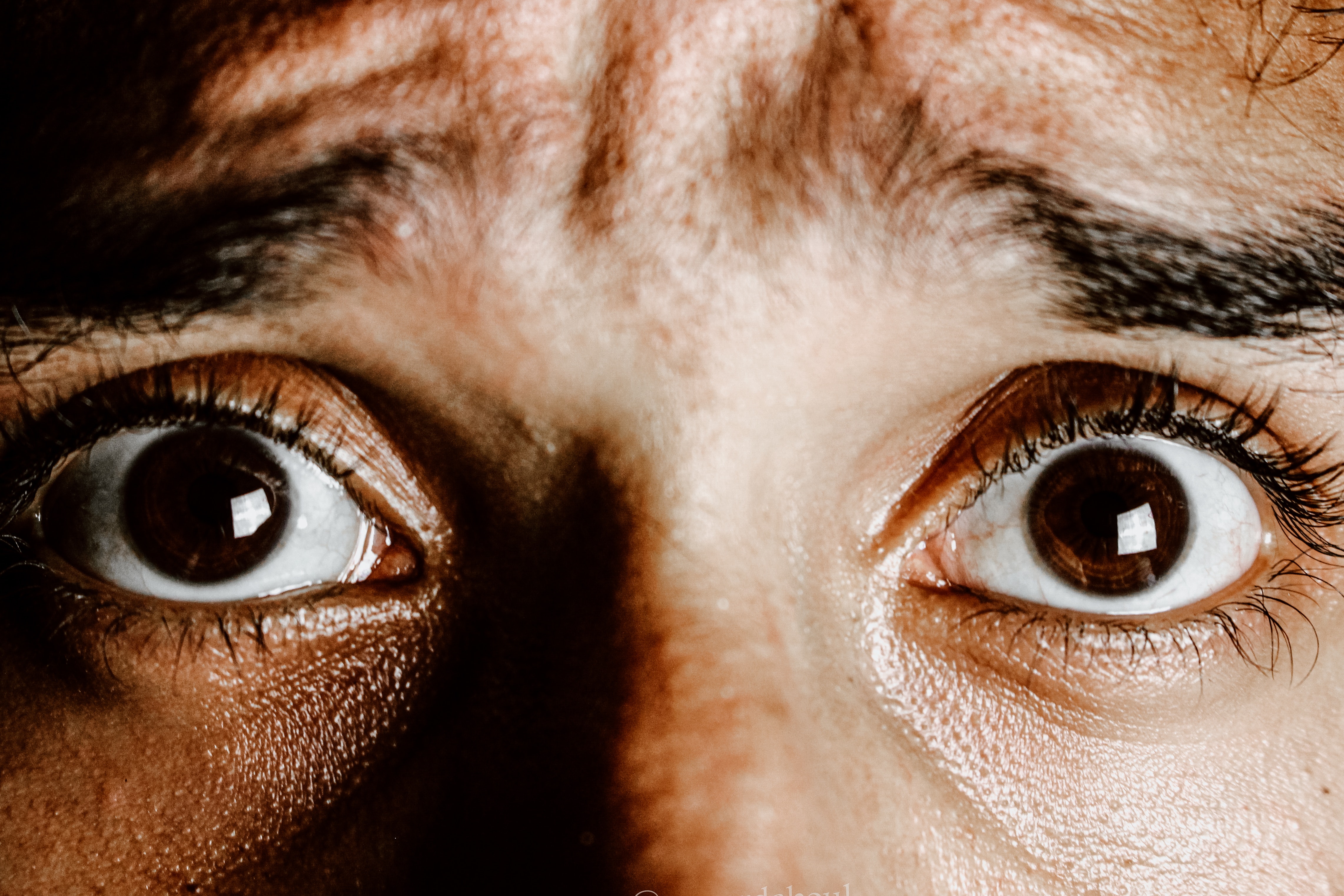Fear
When was the last time you were afraid?
What are you afraid of?
The term “fear” is usually associated with something negative. And yes, feeling afraid is unpleasant and nobody likes it, apart from people who visit a chamber of horrors sometimes. But here the appeal is more the thrill than the feeling of fear in itself.
What is fear, exactly? If you google the word “Angst” (fear in German), you get hits for the term “anxiety disorder”. So fear, or angst, is directly associated with a disorder, something that is not normal. Is that correct? We will explore this question in this article and take you on a journey around the subject of fear and angst.
A basic human feeling
Fear is a feeling and so a part of life. It accompanies us from birth to death in ever new forms and ways. It is an illusion to believe that you can live your life without fear.
“It isn’t courageous to go seemingly fearless through life, but rather to face your fears and ask them: Hello, what do you actually want?”
− Antonia Wille −
Although fear is an inescapable part of life, this does not mean that we need to be constantly aware of it. Like all feelings, fear can emerge at any time when triggered by internal or external stimuli. But then we usually tend to sidestep or avoid it. During our lives, we develop many techniques for and methods of suppressing, numbing, covering up or denying fear. But many things do not cease to exist just because we don’t think about them, and fear is no exception.
Fear is individual
If you ask three people in your social circle about what they are afraid of, you will probably get three different answers. Fear, then, is subjective and can vary from person to person. However, there are specific situations and circumstances that are frequently associated with fear, such as public speaking, entering confined spaces or flying.
Regardless of which situations or thoughts make us afraid, experiencing fear is part of our existence. Everyone has their own personal fears that are a part of them. However, the origins of fear are the same for all of us and lie in our evolutionary heritage. Fear has been a survival mechanism that protects us from potential dangers since the earliest days of humanity.
If we ever take a “fearless” look at fear, we will realise that this feeling has two sides to it. On the one hand, fear can immobilise us, and on the other, it can activate us. Fear is always a signal, and when in danger, a warning. It always comes with an incentive: the impulse to overcome it. Consequently, accepting and conquering fear is a developmental step that causes us to mature a little. Since childhood, every developmental step, every stage of maturity, is associated with fear, because fear leads us to something new that we previously didn’t know or couldn’t do. Everything unknown, everything new, every first-time experience or first-time activity entails fear, in addition to the desire for adventure, the appeal of novelty and the joy of risk. As we repeatedly encounter the new, the unknown and the unfamiliar in life, fear is our constant companion. We are most likely to be aware of it when we are obliged to leave our comfort zone. Does that sound familiar?
This means that it is important for our development for us to experience entirely normal developmental and age-related fears, and to overcome them. An example is a child’s first independent steps, when it lets go of its mother’s or father’s hand, and has to overcome the fear of walking alone and being left alone in the space.
When does fear stop being “normal”?
We talk about an anxiety disorder when the fearful feelings become overwhelmingly strong, persist for a disproportionate time and adversely affect the life of the person concerned. Anxiety is a mental illness that can take on various forms, including specific phobias, generalised anxiety, panic attacks and social anxiety. Someone who suffers from an anxiety disorder experiences chronic fear that results in severe suffering, avoidance behaviour and restrictions in daily life.
It is important to bear in mind that an anxiety disorder is nothing to do with weakness or abnormality. Rather, it is a recognised medical condition that can be caused by a combination of genetic, biological, psychological and environmental factors. An early diagnosis and appropriate treatment can help people with anxiety to live a fulfilled, viable life.
It is crucial that people suffering from an anxiety disorder seek professional help, whether it is psychotherapy, medication or a combination of the two. Treatment can help to alleviate symptoms, teach coping strategies and how to enjoy life in all its fullness despite the anxiety. So fear is a basic human feeling that can manifest in various forms. By contrast, an anxiety disorder is a serious condition that requires professional support. If you suffer from persistent anxiety, then get some help! You can find organisations under our heading “Help and advice” that may be able to help you.
References
Koch, J. (1998). The emotional brain: The mysterious underpinnings of emotional life. Simon & Schuster.
Nesse, R. M. (1999). Evolutionary explanations of emotions. Human Nature, 10(4), 261-289.
Öhman, A., & Mine. Rieman, F. (2017). Grundformen der Angst. Ernst Reinhardt GmbH & Co KG, Verlag, München.
 subscribe to newsletter
subscribe to newsletter


